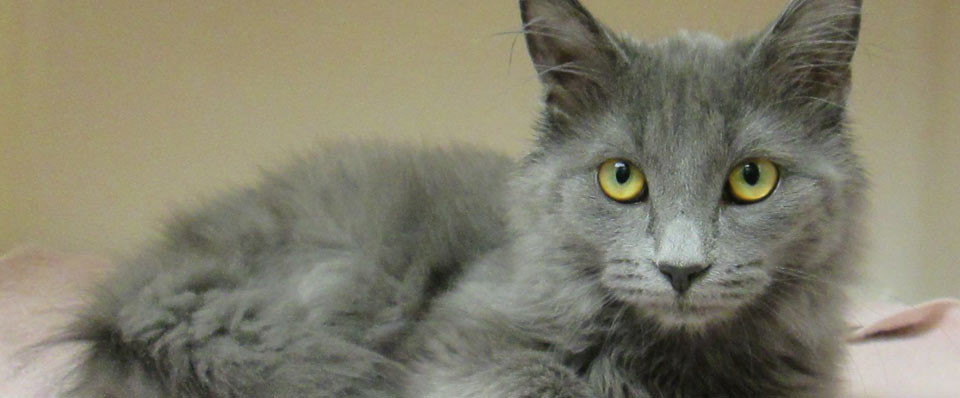As cats get older, it can be common to see a more mellow personality. They can have changes in both their physical and mental abilities. Often cats may be more sedative rather than playful. Senility can also affect cats where he/she may act forgetful, stare at walls, pace, and/or have inappropriate elimination. There are many changes in behavior that can further signify the beginning of a medical problem. Rather than assuming it is age, we recommend that you bring your cat for a veterinarian evaluation as he or she may have a treatable health condition.
We recommend that you schedule an appointment if any of the following signs are seen:
- increased thirst
- increased or decreased urination
- changes in appetite
- sudden increased vocalization
- poor hair coat or if develops disinterest in grooming
- develops a lump
- is coughing or having breathing problems
- is unusually anxious or irritable
- inappropriate elimination (urine or stool)
- unexplained weight loss
- changes in activity
Diseases that often can appear as behavior changes in cats include:
- Arthritis: This causes joint pain which can make cats more irritable or anxious, start to have inappropriate elimination (too painful to get in/out of litter box), stop playing, slower with stairs, decreased grooming and decreased appetite.
- Hypertension: This causes sustained high blood pressure which can make cats more lethargic, appear confused, more aggressive or irritable, or seizure.
- Kidney disease: This causes improper function of kidneys and allows toxins to buildup in the bloodstream. Cats often feel so sick that they can become irritable, have a decreased appetite, vomit, loss of housetraining (have accidents) and can have changes in drinking.
- Hearing loss: This can cause a cat to act more anxious, be more vocal and not respond to commands or sounds around the house anymore.
- Brain tumor: The location can be important in determining what is seen at home. Frequently cats can display seizures, appear to have difficulty walking or have a head tilt.
- Cognitive Dysfunction Syndrome: This resembles Alzheimer’s disease in cats. It is only diagnosed by ruling out other medical condition and first treating any underlying health conditions.
- Diabetes: This tends to cause increased thirst, urination and appetite in most cats. It can also lead to hindlimb weakness and difficulty jumping.
- Hyperthyroidism: This can cause a cat to stop grooming, cry for no reason, lose weight, have a huge appetite and act more irritable or confused.





